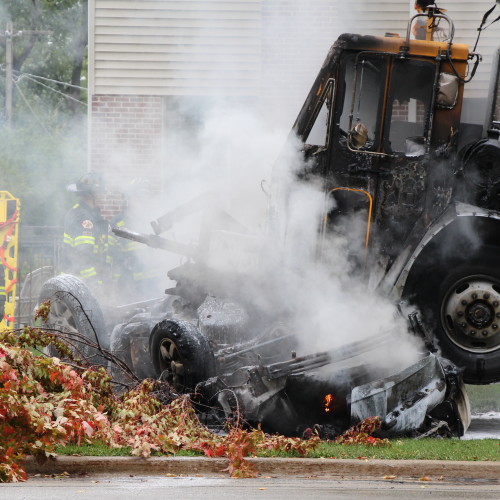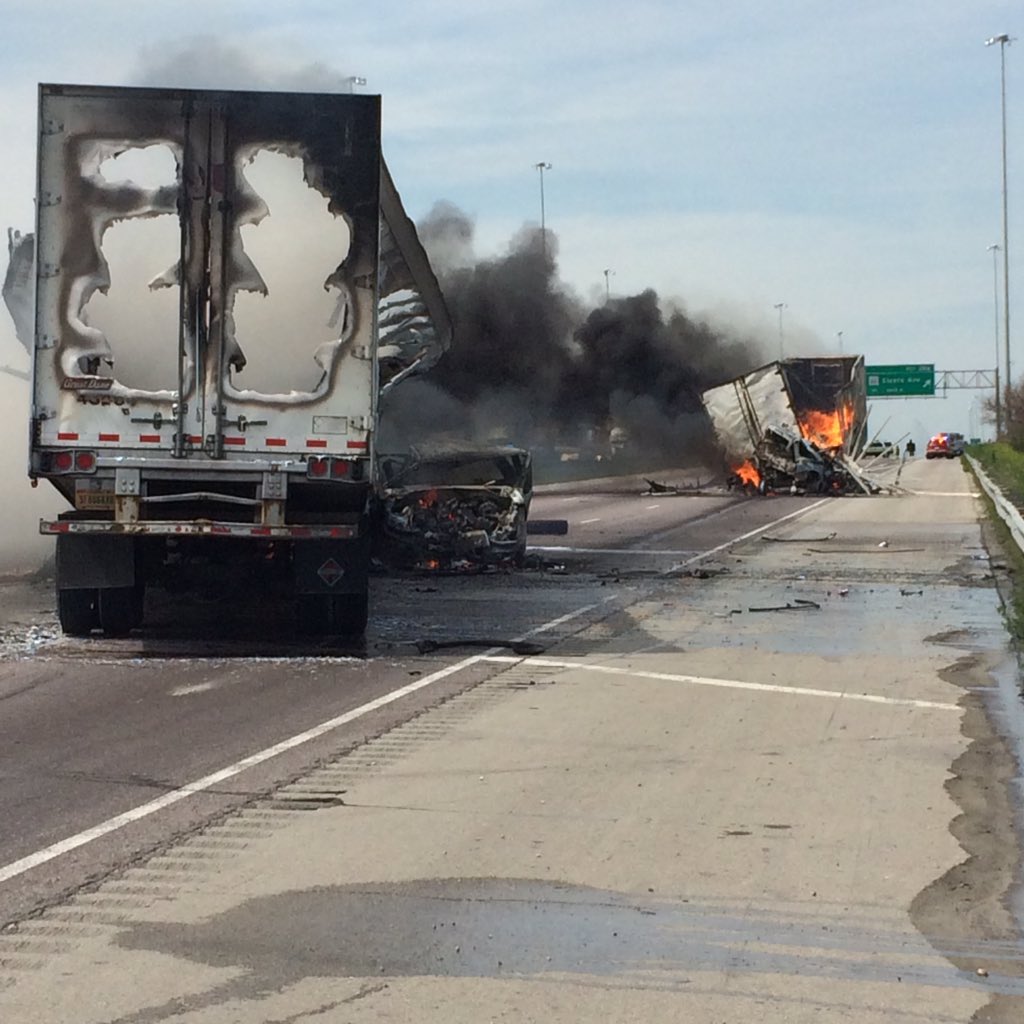
Chicago Truck Accident Guide
Were you injured in a truck accident in Chicago? This Chicago based truck accident guide will help you navigate the complex legal process. Tractor-trailers (also known as semis) can be deadly road companions, especially if they are carrying heavier loads, which slows the truck’s ability to stop considerably.
In 2016, one person was killed and traffic was backed up for hours after two semi-trailers collided on a busy Chicago interstate, leaving one of the drivers dead.
Tractor-trailer accidents are common in the Chicago area, in part because traffic can be heavy during rush hour, but also because of factors such as weather and speed. According to experts, a semi driving 55 miles per hour (a rate that is rare in Chicago, where drivers tend to traditionally travel over the speed limit, as anyone who has visited the city knows) requires the distance of a football field to stop. If roads are slick due to snow or ice, that distance only increases.
In heavy traffic, it might be impossible to prevent an accident from happening, but if you are involved in an accident, it’s important to follow certain protocol, especially if you suffer injuries in the event.
Consulting a Chicago truck accident lawyer can help you navigate the complex legal process more easily.
What to Do if You are Involved in a Tractor-Trailer Accident in Chicago

While it is likely that you’ll be traumatized or seriously injured following a collision with a tractor-trailer, there are certain steps you should take to help make recovering potential damages easier after the accident debris has been cleared and any memory of it erased for everyone but those involved.
- Gather as much evidence at the scene as you can. If you are able, take photographs of the accident scene, get witness information so your attorney can contact them later to determine what happened and who was at fault. Ask the police for the number of the police report so you can get a copy later and find out what you can about the driver, his or her company and insurance.
- Seek medical attention as quickly as possible. Because your injuries can be potentially severe – tractor-trailer accidents are almost always more serious than injuries involved between two automobiles because of the weight involved – see a doctor. You may have injuries that are more serious than you think, and it will be important to have documentation.
- Contact an attorney. In the event of a tractor-trailer accident, it’s important to hire an informed, experienced attorney to handle your case. There are numerous federal regulations in place for tractor-trailer drivers, so you’ll want to contact an attorney who understands those regulations, as well as regulations in place in the state of Illinois. The right attorney will help gain access to the black box that tractor-trailers are equipped with, a valuable bit of evidence that will be important if your case goes to trial. Acting fast will help your attorney secure that black box information and other driver records before the information can be destroyed.
- Don’t speak to an insurance company without your attorney. An insurance company is after the lowest bottom line and will likely try to get you to accept a lower offer than one a good attorney could negotiate.
- Keep track of your medical records. The injuries you sustain in a tractor-trailer accident can be potentially catastrophic, requiring long-term care, therapy and psychiatric care to deal with those issues. Having all of your bills and records in one place will make it easier for your attorneys to determine what kind of compensation you require to cover your costs of care.
Common Causes of Chicago Tractor-Trailer Accidents
There reasons for tractor-trailer accidents vary by circumstance, but there are some fairly common reasons why accidents occur. Some include:
Driver negligence. According to the American Trucking Association, there is a nationwide shortage of drivers on the road. That doesn’t mean that there is any less demand for goods to be transported, however. That means drivers will often log more hours on the road than they are legally allowed, leading to both driver fatigue and inattentive driving. Experts estimate that driver fatigue could account for nearly half of all accidents involving a tractor-trailer. Drivers may also use drugs or alcohol while driving, which has been shown to be one of the leading factors relating to tractor-trailer accidents.
Negligence on the part of the trucking company. Despite regulations controlling the number of hours a driver must log as training time, many companies send inexperienced drivers out or fail to fully vet new hires, putting others on the road at risk.
Violations of laws. Many trucking companies hire drivers who don’t have a valid commercial driver’s license (CDL) or Many drivers keep two sets of log books – one with their actually hours, another to show officials at weigh stations – in order to bypass federal restrictions on the amount of time they are allowed to be on the road without a break.
Failure to do proper maintenance. Trucking companies are required to ensure that their semis are safe on the road, but faulty brakes, loads that are too heavy, improperly installed or inadequate safety equipment and other negligent maintenance issues may all potentially lead to a crash.
Speeding. Drivers are likely to speed in order to meet tight delivery deadlines, which makes it more difficult for drivers to control their vehicles. Speeding is particularly dangerous in certain weather conditions or driving through mountain terrain.
Weight and loading issues. There are reasons why weigh stations pepper America’s highways. Drivers travel under specific regulations regarding not only load weight limits, but also how cargo is loaded on a trailer. Improperly loaded trucks or trucks carrying too much weight are more likely to suffer brake failures, rollovers, jack-knife incidents or tire blowouts, all of which present very real dangers for others on the road.
Aggressive driving. Many drivers are in such a hurry to get where they are going that they fail to recognize the dangers of driving on the road with a tractor-trailer. It’s important to remember that if you are behind a tractor-trailer and you cannot see their side mirror, they cannot see you. Also, be sure to give a driver plenty of room if you are ahead of a truck and are stopping to turn, because they need extra time to stop without rear-ending you or jack-knifing, which puts not only you, but also others on the road in danger.
Were you injured in a truck accident in Chicago? Get in touch with a Chicago truck accident lawyer today and get the compensation you deserve.












